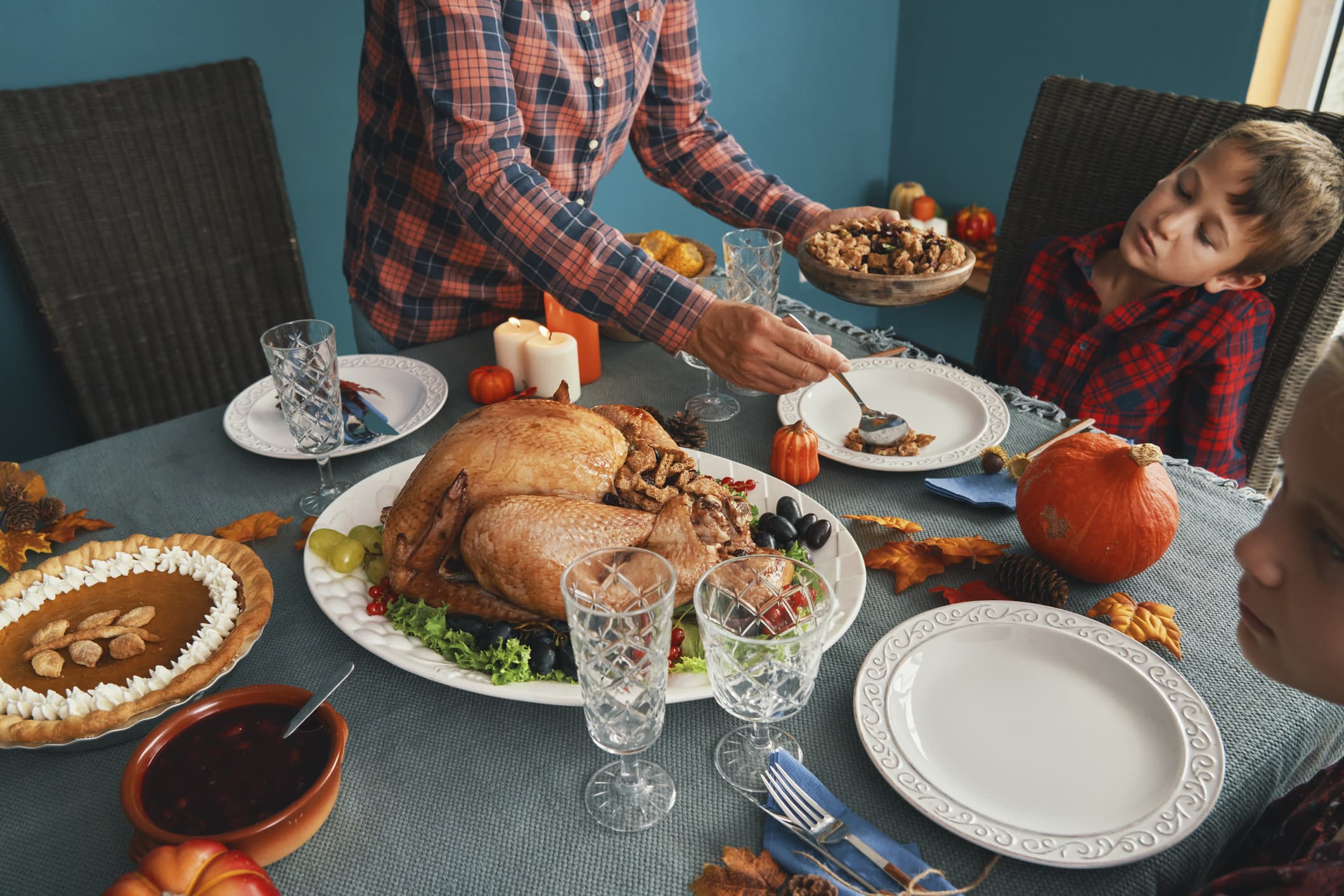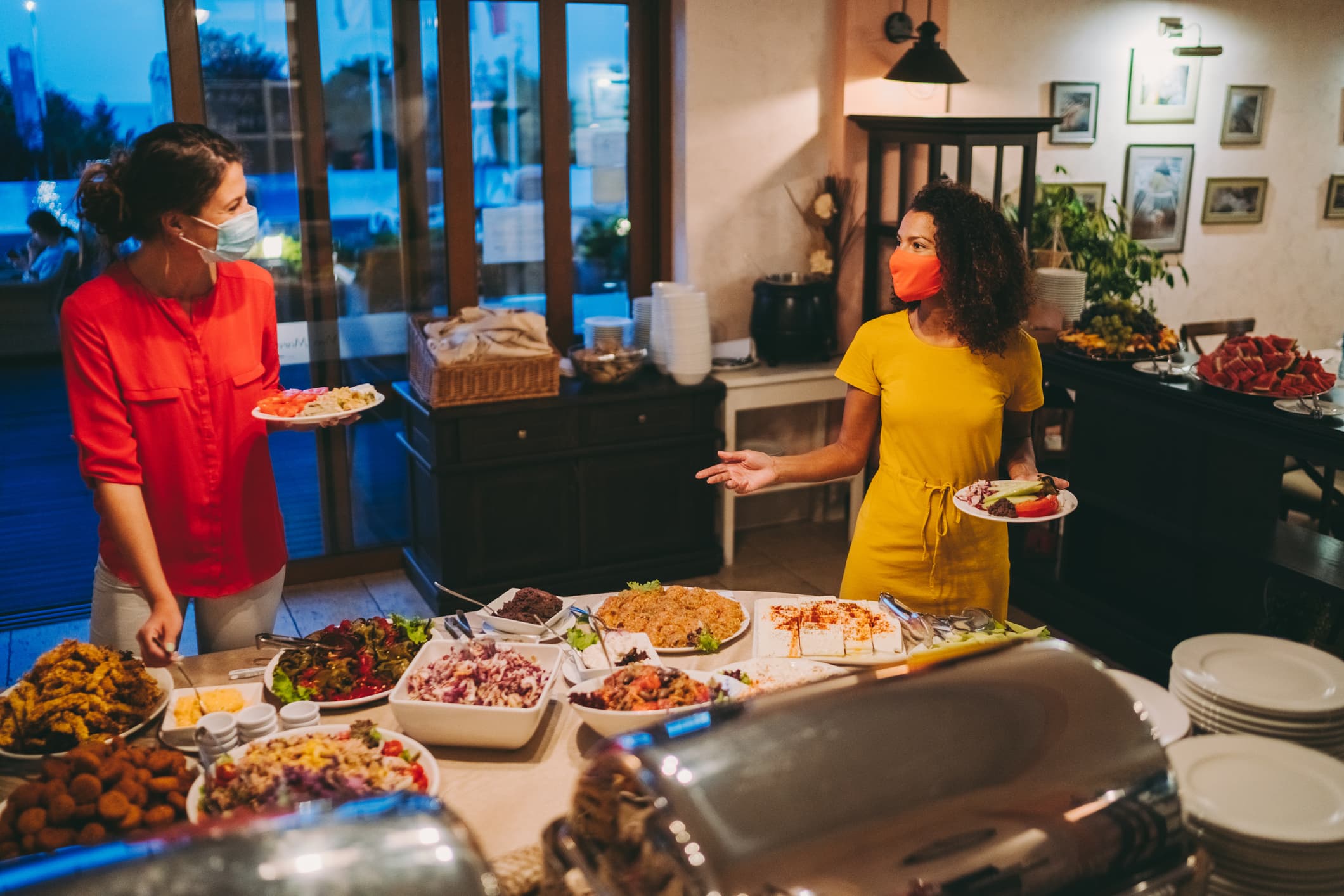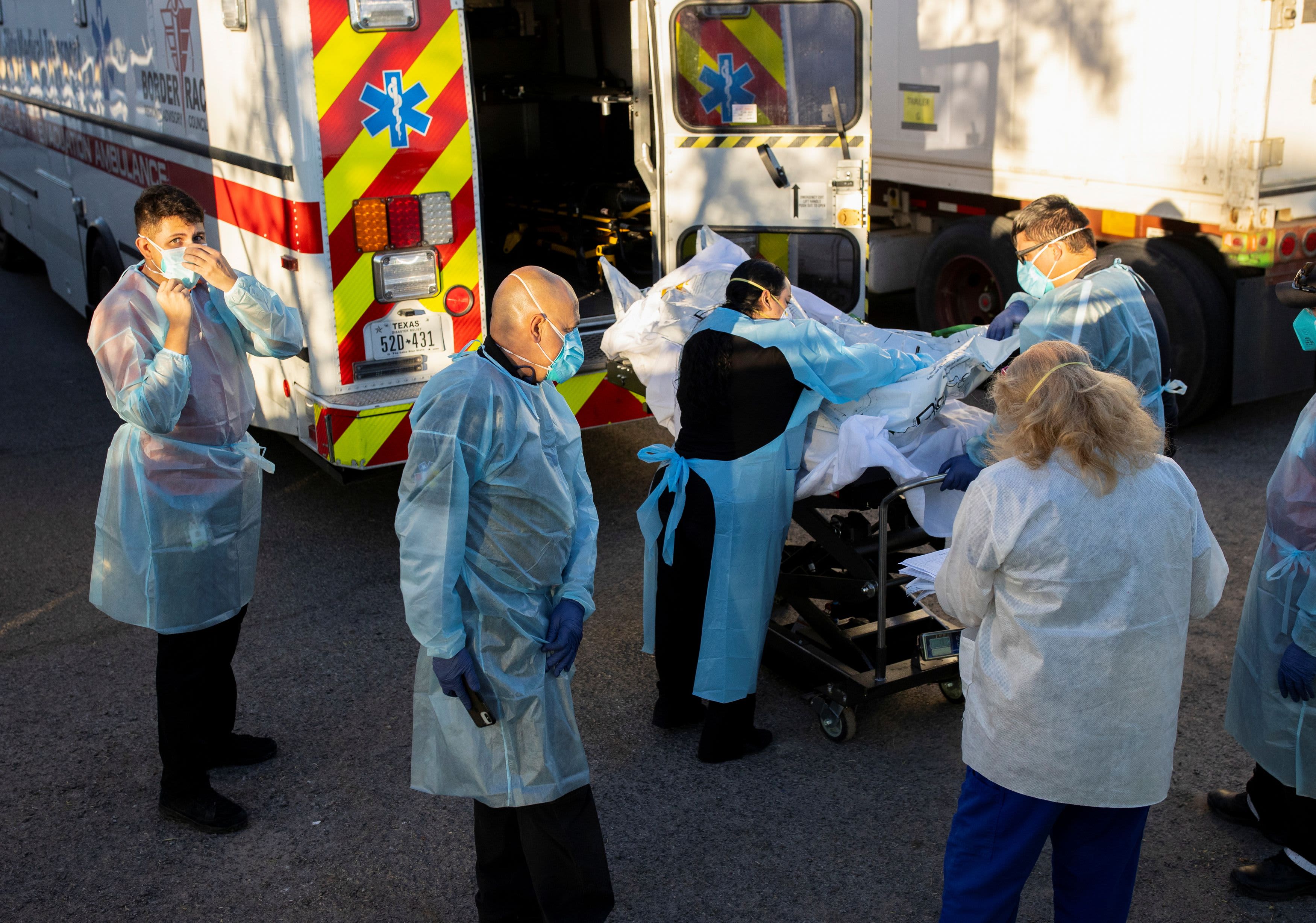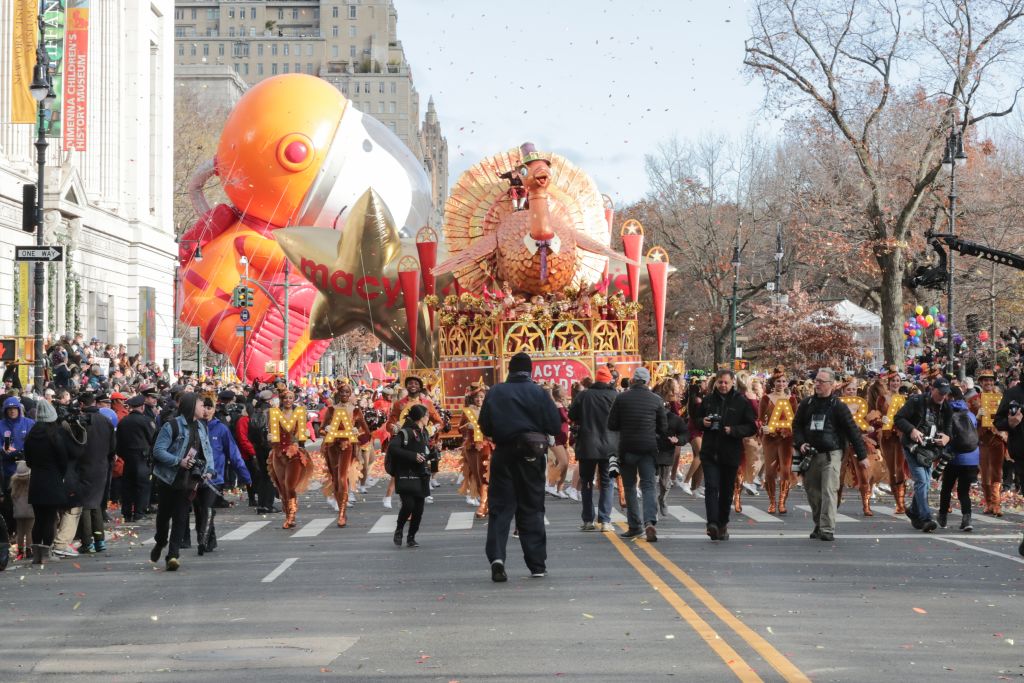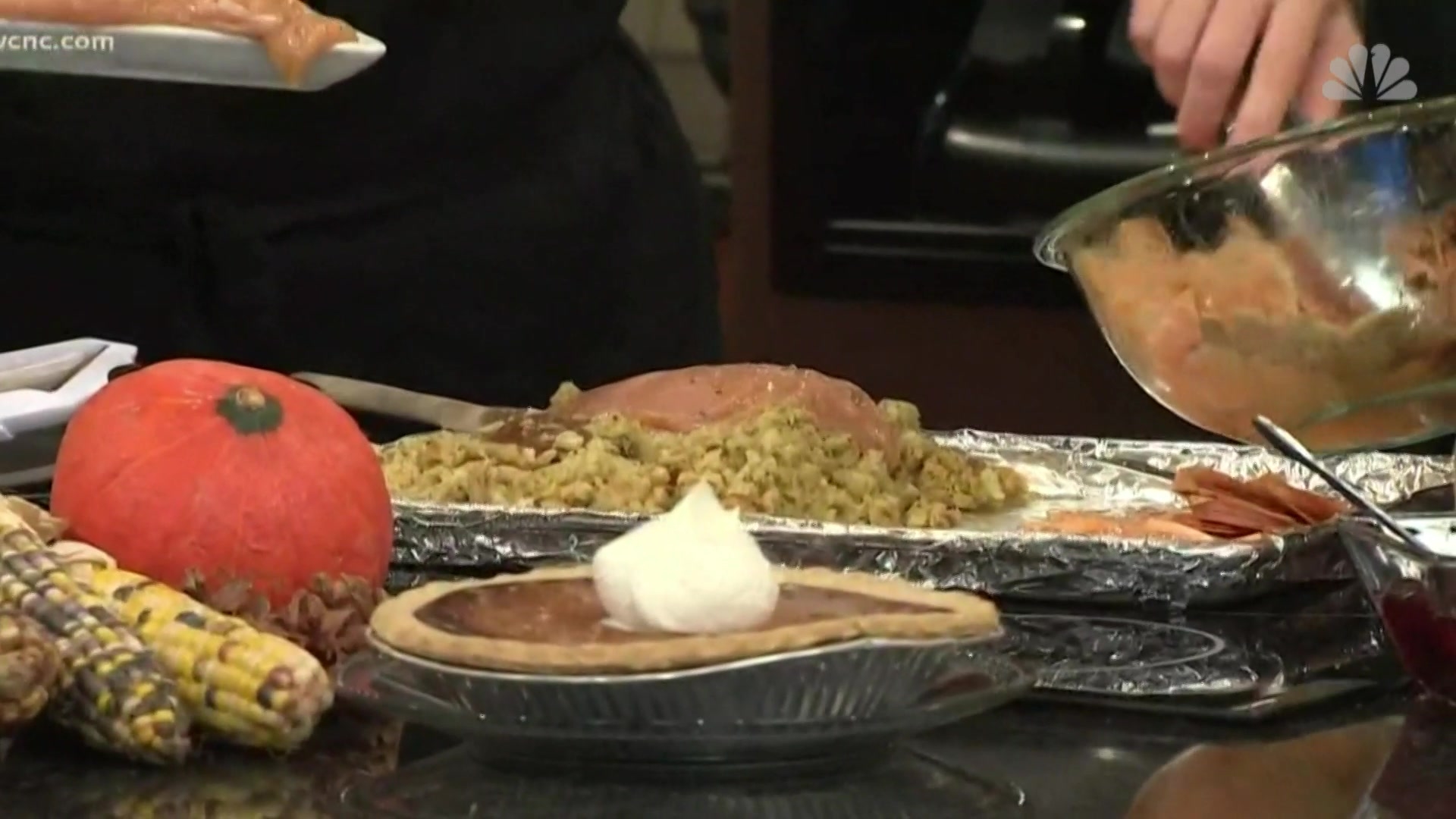With coronavirus cases still surging across the U.S., health officials last week implored Americans ahead the Thanksgiving holiday to forgo travel, cancel large get-togethers and spend the holiday at home with members of their own households.
"Celebrating virtually or with the people you live with is the safest choice this Thanksgiving," the Centers for Disease Control and Prevention (CDC) says in its updated guidance.
Here's what you should know about celebrating Thanksgiving in 2020.
What Is the Latest CDC Thanksgiving Guidance?
Americans should celebrate at home with other members of the household only, the CDC has urged in an attempt to curb virus spread.
"As cases continue to increase rapidly across the United States, the safest way to celebrate Thanksgiving is to celebrate at home with the people you live with," the CDC said in its updated guidelines. Read the full guidelines here.
Reminder: According to the CDC, your household "is anyone who currently lives and shares common spaces in your housing unit (such as your house or apartment). This can include family members, as well as roommates or people who are unrelated to you. People who do not currently live in your housing unit, such as college students who are returning home from school for the holidays, should be considered part of different households."
Should I Travel for Thanksgiving?
No, according to the CDC. However, for those who think their circumstances might constitute an exception, the CDC has a list of yes-or-no questions you should ask yourself when trying to decide whether to make your Thanksgiving trip.
- Are you, someone in your household, or someone you will be visiting at increased risk for getting very sick from COVID-19?
- Are cases high or increasing in your community or your destination? Check CDC’s COVID Data Tracker for the latest number of cases.
- Are hospitals in your community or your destination overwhelmed with patients who have COVID-19? To find out, check state and local public health department websites.
- Does your home or destination have requirements or restrictions for travelers? Check state and local requirements before you travel.
- During the 14 days before your travel, have you or those you are visiting had close contact with people they don’t live with?
- Do your plans include traveling by bus, train, or air which might make staying 6 feet apart difficult?
- Are you traveling with people who don’t live with you?
If you answered "yes" to any of those questions, the CDC advises that you reconsider your plans to travel this Thanksgiving.
Those who intend to go ahead with their travel plans should prepare by getting a flu shot, stocking up on extra supplies like face masks and hand sanitizer and checking travel restrictions ahead of time, the CDC says. Here are some guidelines for staying as safe as possible while traveling amid the pandemic.
Should I Get Together With My Family for Thanksgiving?
Short answer, no – according to the CDC, the safest, surest way to limit virus spread is to limit in-person celebrations to only the members of the household. For those who intend to proceed with plans that include members of multiple households, there are a variety of risk factors to consider:
- Community Levels of COVID-19: High or increasing levels of COVID-19 cases in the gathering location, as well as in the areas where attendees are coming from, increase the risk of infection and spread among attendees. Family and friends should consider the number of COVID-19 cases in their community and in the community where they plan to celebrate when deciding whether to host or attend a gathering. Information on the number of cases in an area can often be found on the local health department website.
- Exposure During Travel: Airports, bus stations, train stations, public transport, gas stations and rest stops are all places travelers can be exposed to the virus in the air and on surfaces.
- Location of the Gathering: Indoor gatherings, especially those with poor ventilation (for example, small enclosed spaces with no outside air), pose more risk than outdoor gatherings.
- Duration of the Gathering: Gatherings that last longer pose more risk than shorter gatherings. Being within 6 feet of someone who has COVID-19 for a cumulative total of 15 minutes or more greatly increases the risk of becoming sick and requires a 14-day quarantine.
- Number and Crowding of People at the Gathering: Gatherings with more people pose more risk than gatherings with fewer people. CDC does not have a limit or recommend a specific number of attendees for gatherings. The size of a holiday gathering should be determined based on the ability of attendees from different households to stay 6 feet (2 arm lengths) apart, wear masks, wash hands, and follow state, local, territorial, or tribal health and safety laws, rules, and regulations.
- Behaviors of Attendees Prior to the Gathering: Individuals who did not consistently adhere to social distancing (staying at least 6 feet apart), mask wearing, handwashing, and other prevention behaviors pose more risk than those who consistently practiced these safety measures.
- Behaviors of Attendees During the Gathering: Gatherings with more safety measures in place, such as mask wearing, social distancing, and handwashing, pose less risk than gatherings where fewer or no preventive measures are being implemented. Use of alcohol or drugs may alter judgment and make it more difficult to practice COVID-19 safety measures.
For those who intend to host a gathering that includes people from multiple households, the CDC recommends holding the event outdoors. If celebrating outdoors is not possible, open as many windows and doors as possible to bring in fresh air. Use a window fan in one of the open windows to blow air out of the window – this will pull fresh air in through the other open windows.
It's recommended that all guests wear masks when not actively eating or drinking and maintain social distancing practices, whether indoors or outdoors.
Hosts should strictly limit the number of people allowed in food prep and cooking areas, designate one person to serve food (instead of buffet-style or family-style), incorporate single-use condiments and utensils and limit the number of attendees. The CDC suggests that hosts have conversations with guests ahead of time to set expectations for celebrating together.
Read the CDC's "Considerations for Events and Gatherings" for more information and guidance.
More Thanksgiving 2020 Coverage
Is It Safe to Have Grandparents or Older Relatives to Thanksgiving Dinner?
If the grandparent or relative does not live with you, they fall outside of the household-only Thanksgiving guidelines and it is recommended you do not celebrate in-person together.
For those still weighing the risk factors involved in including an older relative from outside the household: the CDC says that "If you are an older adult or person with certain medical conditions who is at increased risk of severe illness from COVID-19, or live or work with someone at increased risk of severe illness, you should avoid in-person gatherings with people who do not live in your household."
The list of those who definitely should not attend an in-person gathering includes anyone who:
- Has been diagnosed with COVID-19 and has not met the criteria for when it is safe to be around others
- Has symptoms of COVID-19
- Is waiting for COVID-19 viral test results
- May have been exposed to someone with COVID-19 in the last 14 days
- Is at increased risk of severe illness from COVID-19
How Do I Tell My Family I'm Canceling Thanksgiving Dinner Because of COVID?
Telling loved ones that you can't spend the holiday together isn't easy – perhaps especially this year, when a day of family, food and football could provide a much-needed feeling of relief to many. Health experts spoke with TODAY and offered these tips on how to break the news gently.
Ideas for a Safer, Smaller Thanksgiving During COVID
The safest way to see family and friends this Thanksgiving is virtually, experts say. If sharing a turkey dinner over a Zoom call isn't appealing, you can do a virtual coffee, drink or dessert pre- or post-dinner instead. Or with a bit of planning ahead of time, you can get everyone together for a virtual game night.
Other ideas for lower-risk ways to connect with loved ones this Thanksgiving include hand-delivering food to family and friends' doorsteps (but don't go inside or break social distancing!), having a bring-your-own-Thanksgiving socially distanced picnic and planning a texting scavenger hunt. Read more from TODAY about how to make the best of this year's downsized Thanksgiving.
While this Thanksgiving will be an unusual one, there will still be turkey dinner, college football and the Macy's Thanksgiving Day Parade on TV to make it feel like the holiday.
How to Cope With Holiday Stress and Depression Amid the Pandemic
COVID-19 is adding an extra helping of anxiety to the holiday stress and seasonal mood changes that come around this time of year.
Below, LX News has some tips for people feeling uneasy about their Thanksgiving holiday plans.

